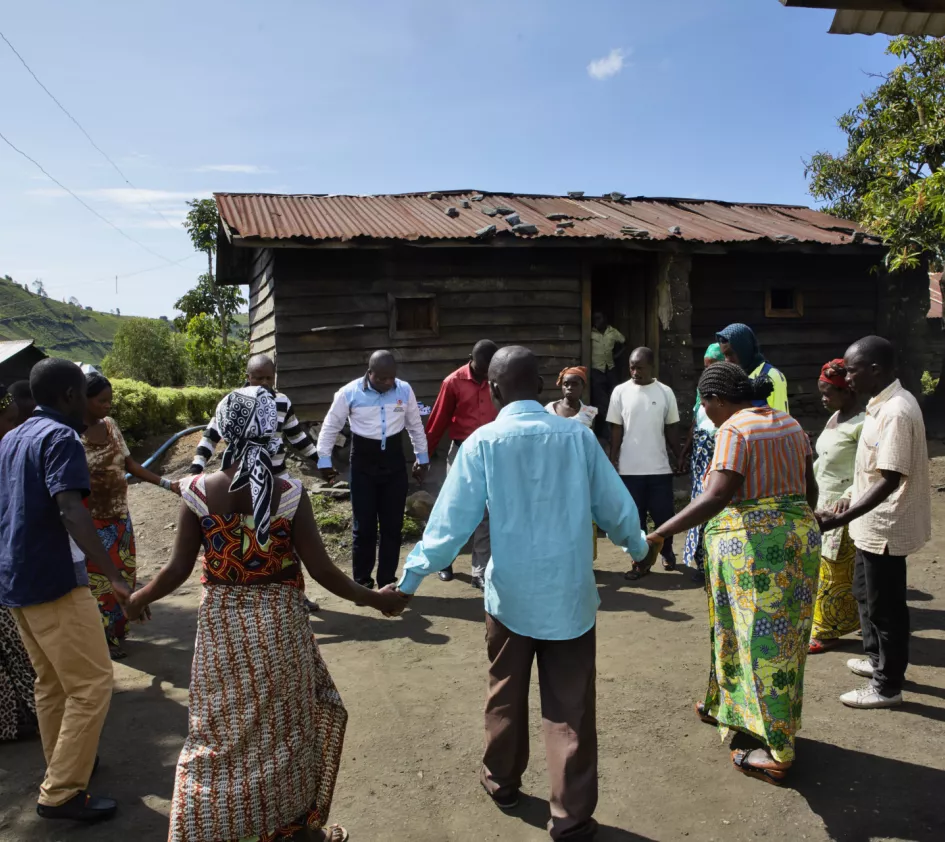To restore trust and to contribute to a more peaceful future, ZOA has introduced Community Based Sociotherapy (CBS) in conflict affected settings like Liberia and DR Congo, together with the Congolese organisation PDD.
Key to this approach - and central to ZOAs way of working – is the fact that CBS is community led and driven. In CBS, participants from one village form small groups to discuss topics that are of daily concern. The groups consist of 12-15 men and women and are guided by two well-trained facilitators from the community.
The aim of this approach is to enable participants to learn and experience new constructive behaviour. This learning process will ultimately have a positive influence on their personal life as well as on their environment. However, this process takes time. Taking this into account, CBS uses a six phase model (see figure 1) to guide the conversations in the small groups.

